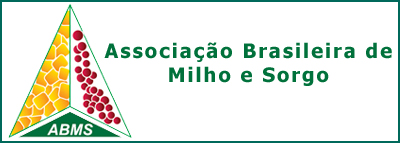GENETIC IMPROVEMENT IN POPCORN
DOI:
https://doi.org/10.18512/rbms2022v21e1272Resumo
Popcorn consumption in Brazil has grown significantly over the years, and genetic improvement is essential to obtain sustainable gains in multiple traits to supply this increasing demand. Thus, the objective of this review was to contribute information concerning the process of popcorn breeding in tropical regions, germplasm availability, popcorn breeding plans, the main characteristics related to popcorn quality and yield, and advances and perspectives in the process of popcorn improvement. The main focus of breeding programs is to obtain hybrids from inbred lines with high popping expansion (>40 mL g-1) and yield (>4.000 kg ha-1). The genetic improvement performed in Brazil has presented significant advances, mainly due to work developed in public institutions with the development of new hybrids that present more significant popping expansion and yield. However, the number of cultivars is still low, and most of them are controlled by private companies. Therefore, intrapopulation methods are recommended to develop open-pollinated varieties with high popping expansion, and this trait can be used as an early predictor of promising inbred lines to obtain superior hybrids for grain quality. Furthermore, popping expansion can be quickly recovered in backcrosses involving the cross of common maize with an inbred popcorn line.
Downloads
Publicado
Como Citar
Edição
Seção
Licença
Autores que publicam nesta revista concordam com os seguintes termos:- Autores mantém os direitos autorais e concedem à revista o direito de primeira publicação, com o trabalho simultaneamente licenciado sob a Creative Commons Attribution License que permitindo o compartilhamento do trabalho com reconhecimento da autoria do trabalho e publicação inicial nesta revista.
- Autores têm autorização para assumir contratos adicionais separadamente, para distribuição não-exclusiva da versão do trabalho publicada nesta revista (ex.: publicar em repositório institucional ou como capítulo de livro), com reconhecimento de autoria e publicação inicial nesta revista.
- Autores têm permissão e são estimulados a publicar e distribuir seu trabalho online (ex.: em repositórios institucionais ou na sua página pessoal) a qualquer ponto antes ou durante o processo editorial, já que isso pode gerar alterações produtivas, bem como aumentar o impacto e a citação do trabalho publicado



